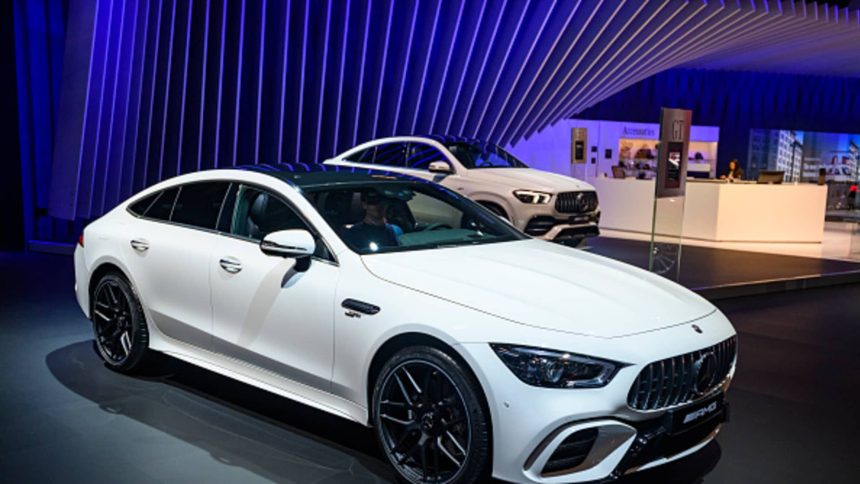Mercedes-Benz shares were sharply lower Thursday after the German carmaker reported a decline in profit and revenue as challenges from electrical vehicle competition to supply chains.
Frankfurt-listed shares were down 5.8% at 10:56 a.m. London time (5:56 a.m. ET), putting the stock on course for its worst day since May 4, according to LSEG data.
The company said it had faced a “subdued market environment marked by intense price competition,” particularly in EVs.
On an analyst call regarding the results, Chief Financial Officer Harald Wilhelm described the EV market as a “pretty brutal space,” Reuters reported. It comes as some traditional automakers sell EVs for less than regular combustion-engine cars — despite higher production costs.
“I can hardly imagine the current status quo is fully sustainable for everybody,” Wilhelm said, according to the news agency.
Group earnings before interest and taxes (EBIT) fell 7% to 4.8 billion euros ($5.06 billion) in the third quarter. Revenue was down 1.4% to 37.2 billion euros, below the consensus estimate, as passenger car sales dropped 5%, partially due to supply chain challenges.
Mercedes-Benz share price.
Inflation was a key challenge for the company, along with supply chain issues and foreign exchange losses.
Results showed overall car sales for the first nine months have been roughly stable, with growth in Germany and a decline in China.
Mercedes-Benz is targeting 50% hybrid and EV global sales by 2025, and says it will solely launch electric-only models from then on. The company said Thursday it remained committed to these targets.
Despite a sluggish start to the electric vehicle transition, legacy automakers have announced ambitious targets in recent years, but face intense competition from Elon Musk’s Tesla and Chinese players such as Warren Buffett-backed BYD.
Mercesdes’ share of all-electric vehicle sales rose from 6% to 11% in the first nine months of the year, the results showed.
Read the full article here




